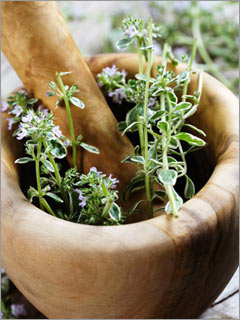Cost: Initial consultation ranges from $50 to $300, depending on practitioner's credentials
Covered by insurance: Sometimes
Bottom Line: Homeopathy may be little more than a placebo, but don't discount the placebo effect. Naturopathy is valuable mainly for its sound healthy-living advice.
Homeopathy is based on the concept of treating "like with like" to stimulate the body's own healing responses. Sick people are given doses of extremely diluted substances that, in undiluted doses, make healthy people feel ill.Homeopathic potions typically come from plants, minerals or animals. Practiced since the 1700s, homeopathy attracts millions of followers today. Just take a walk down the natural healing aisle of your local Whole Foods to see remedies for everything from allergies to sciatica to warts.
Does it work? The Lancet, a leading British medical journal, calls homeopathy "nothing but a placebo." The French Academy of Medicine says, "Homeopathy has no therapeutic effect." NCCAM says research so far is inconclusive.
A lot of doctors believe the real magic in homeopathy and other alternative therapies is indeed the placebo effect. Doctors are constant witnesses to the significant role that wanting to get well plays in recovery.
Naturopathy has its roots in 19th-century Germany and seeks to use gentle, noninvasive methods including water therapy and exposure to sun and air to help the body heal itself.
Processed foods are typically banned, so you might have to give up your Twinkies - unquestionably a good thing for your health. Treatments are considered generally safe and offer comfort for patients suffering from allergies, insomnia and symptoms of menopause.
There's no scientific support, however, for using naturopathy as the primary therapy for a serious disease.

